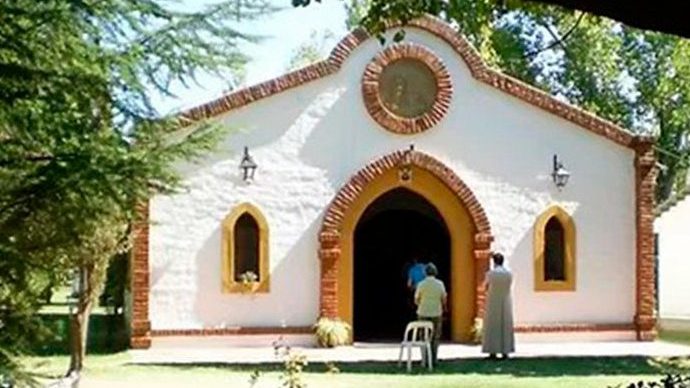Tension continues to grow over the Vatican-ordered closure of a diocesan seminary in Argentina’s Mendoza region.
Last week, Bishop Eduardo Taussig released a letter to the faithful, trying to calm down the situation after hundreds of people gathered to pray the rosary in front of the seminary, but it backfired.
The closure of the priestly formation center in San Rafael, Mendoza, was announced in July. Taussig, who supported the Vatican decision to close the facility, traveled to Rome in October to further discuss the matter with the Congregation for Clergy and upon his return said the decision was made and not up for discussion.
Widely regarded as “traditional,” the seminary was the formation house for dozens of diocesan priests in San Rafael, some of whom see no justification for the decision and who’ve publicly challenged it for months during their homilies.
Though observers have pointed out that the bishop has long disliked the conservative view of the seminary and had long sought to shut it down, the final straw was when the seminary became a stronghold for those who opposed COVID-19 restrictions that ordered Communion only be given in the hand.
On Oct. 30, Taussig released a video addressing the “confusion generated by the anonymous call for protests” that led people to pray in front of the seminary.
“The closing of the seminary causes immense suffering to all: To the seminarians in the first place, who are the most affected of all; to their families and communities; to the priests; and last but not least, the bishop,” he said. “This decision was taken following the precise directives from the Holy See. As St. Agustine used to say, Roma locuta, causa finite est.”
“As children of the Church we must all obey the competent authorities,” Taussig said.
The gestures of rebellion, he said, as well as the “regrettable episode that took place in the doors of the diocese last Sunday, hurt above all the seminary.”
He’s referring to a series of signs challenging the decision that laypeople had placed in the vicinity of the diocesan offices. Some demonstrators even took their children and allowed them to knock on windows and doors as a sign of protest.
These gestures, he said, “hurt the unity of the church and Scandalizes its members (and those who are not and surprised watch from afar), and are seen as ‘the fruits of the seminary,’ because they reflect, at least indirectly, the formation received by those who graduated from the seminary.”
Although acknowledging the “good fruits” produced by the seminary, the bishop said there are “anonymous” leaders manipulating the faithful about the situation, and many of them are not from the Diocese of San Rafael,
He also warned the faithful against “news agencies that intervene in our reality that have very critical and holding positions against Pope Francis, against the previous holy popes and even against the Second Vatican Council.”
Yet there have been at least three demonstrations in the diocese since Taussig returned from Rome, and several people – including parents of seminarians – say they have written to Pope Francis to urge him to keep the seminary open.
Some protestors are even calling for the bishop to resign, labeling him a traitor, and urging the Vatican to send an apostolic visitor to the diocese.
Juan Adrián Reche and Graciela Romo, parents of one of the seminarians, spoke with a local radio station earlier this week, describing the situation as “very hard” and inexplicable, despite the attempts made by the bishop to justify the closing of the seminary – a lack of faculty, despite the diocese having the highest priest-per-parish ratio in the country, or the rebellious attitude against the decree of giving Communion in the hand.
“We accept [the decision] and understand that the Holy Father has the last word, and we’ve always been obedient to him and the bishop … but we’d like to know the causes, because if there’s a sentence, there must be a crime, but we don’t know the crime,” Rache said. “Our children have not been informed of the crime, and neither have us, as parents.”
The parent noted that, because Taussig has said so himself, “all we know is that the young men are innocent. If they’re innocent, then why are they being punished?”
Among the lay people who’re opposing the measure is Dr. Miguel Soler, a highly respected medical doctor, who called the decision “regrettable, because one never loses hope that God will touch hearts, enlighten minds, to act accordingly for the good of the Church in the diocese. In this case, the close of the seminary seems to us as a measure that has no valid, known, rational cause, even within the civil sphere.”
When faced with such a measure, he argued, the least that could be done is adequately communicate the reasoning behind the decision.
Taussig was appointed to San Rafael by Pope emeritus Benedict XVI in 2004, and until the controversy regarding the seminary, he was considered to be a member of the “conservative wing” of Argentina’s bishops conference.

